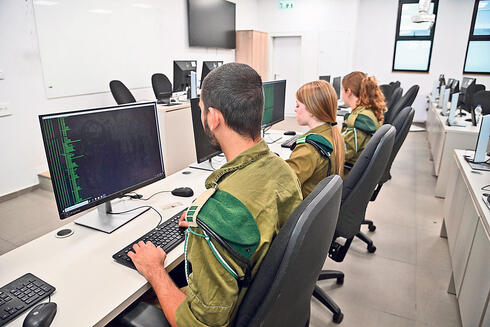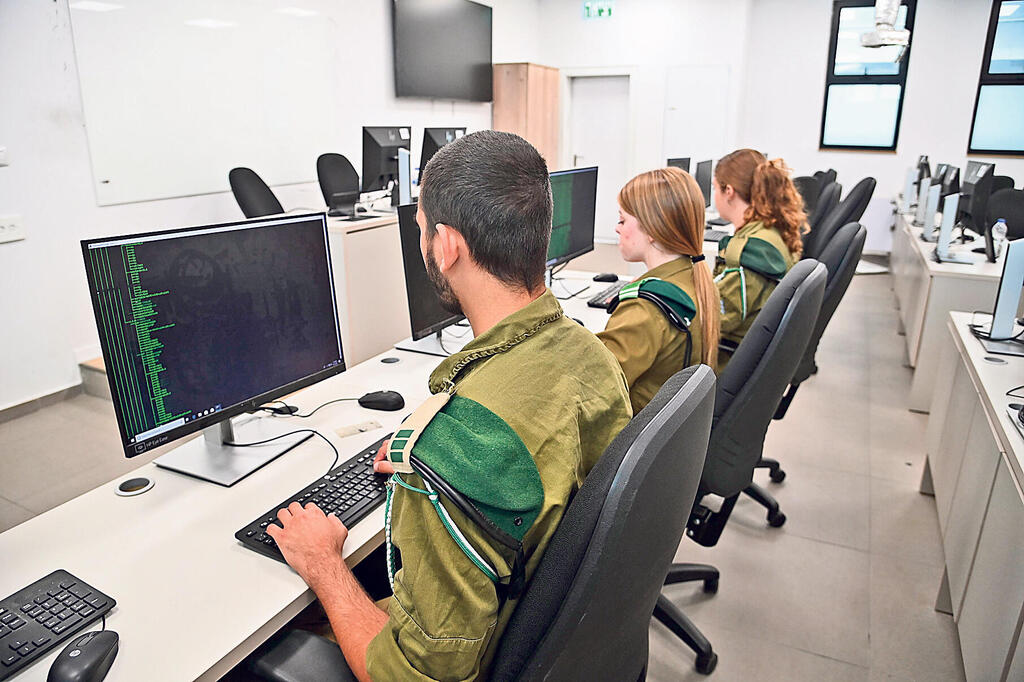
Eight trends that defined Israeli tech in 2024
A year of cyber milestones, wartime innovation, and shifting investment dynamics.
Cyber is now an industry in its own right
“The high-tech industry is the engine of the economy” is undoubtedly one of the most overused phrases in Israel, but it may soon be replaced by another: “Cyber is the engine of the Israeli economy.” The year 2024, much like recent years and likely the year ahead, has demonstrated beyond any doubt that cyber is no longer just a segment of Israel’s high-tech industry—it has become a distinct industry of its own.
This shift is evident in the wave of entrepreneurs continually founding and scaling companies in the cyber domain. Consider a few examples: Ofer Ben Noon, who founded Talon and Argus, both of which he sold for a combined sum of about a billion dollars; Zohar Alon, who previously founded Dom9, sold it to Check Point, and is now building a new company; and the alumni of Demisto, who sold their company and went on to establish Descope. This thriving ecosystem has also fostered a unique investor community, including Cyberstarts, Merlin Ventures, Glilot Capital, Hyperwise, and the newly launched Picture Capital, founded by seasoned high-tech entrepreneurs Mickey Boodaei and Dan Amiga.
Despite fears that 2024 would be a particularly challenging year, the cyber industry defied expectations. Wiz, for instance, raised $1 billion at a $12 billion valuation, completed several secondary deals at even higher valuations, rejected a $23 billion acquisition offer from Google, and acquired three companies—two of which were Israeli. Cyera raised $600 million at a $3 billion valuation, while Armis, which had already exited once, raised $200 million at a $4.3 billion valuation. Overall, cyber companies raised 38% of the total funding netted by Israeli tech companies in 2024.
In 2025, this momentum is expected to accelerate. Many cyber companies are reaching maturity, which will likely lead to more significant fundraising rounds. These companies will also find numerous acquisition targets eager to align with their growth trajectories. Notably, Shlomo Kramer’s Cato Networks is expected to go public this year, marking a major milestone for the industry.
In addition, major international players may expand their activity in Israel. Companies like Microsoft, Palo Alto Networks, and Akamai, which already operate significant cyber hubs in Israel, are likely to deepen their investments in the country, given the proven success of their local operations.
The year of the stars: A widening gap between the elite and the rest
While many companies struggled to raise capital in 2023, others found themselves at the center of fierce competition among investors. The stars of the industry—seasoned entrepreneurs with proven track records—are the ones driving this dynamic. These individuals have earned reputations for delivering results and exits, making them a safer bet for investors wary of risk.
Two prominent examples are Amiram Shachar and Ofir Ehrlich. Shachar, who previously founded Spot and sold it to NetApp for $450 million, launched the cyber company Upwind in 2023. Upwind, which develops real-time cloud infrastructure security solutions, raised $80 million in its first year at a high valuation. Similarly, Ehrlich, the founder of CloudEndure (acquired by Amazon for $200 million after raising just $18 million), launched Eon. The company raised $175 million in its first year and reached a valuation of $1.4 billion in its most recent funding round.
These examples highlight a clear trend: investors are increasingly gravitating toward experienced entrepreneurs. While their past successes make them attractive, their new ventures face heightened scrutiny and expectations. The burden of proof is greater, as they must justify the large amounts raised and prove their capacity to innovate once again.
However, it’s important to remember that not all successful entrepreneurs are seasoned veterans. Some of the most transformative figures in tech—Mark Zuckerberg and Sergey Brin, for example—were first-time founders. Perhaps investors should occasionally take a chance on fresh talent, as innovation often comes from those daring enough to think differently.
The year of war: High-tech mobilizes for battle and recovery
The aftermath of October 7th showcased the high-tech industry’s resilience and resourcefulness. Once criticized for being detached from national concerns, the sector mobilized financial, organizational, and technological resources to support the country during the war in Gaza.
Companies like Xtend shifted from civilian drones to military applications, and Exodigo used its advanced mapping technology to assist the IDF in tunnel detection. This rapid response demonstrated the industry's critical role in national defense and recovery.
The year of waiting: Israeli companies hold off on Wall Street
No significant new Israeli high-tech companies were issued on Wall Street in 2024. On the contrary, for the first time in many years, there was a decline in the number of publicly traded companies—partly due to acquisitions, as in the cases of WalkMe and Innovid. Both companies were initially issued at valuations exceeding a billion dollars in 2021, but neither has regained those valuations since. This scenario deters many companies from exposing themselves to public investors, prompting them to remain private.
Staying in the embrace of venture capital funds is often seen as a safer, more comfortable option. These funds, many of which have a vested interest in preserving the inflated valuations of the bubble era, avoid significant markdowns that could impact their returns. This caution is shared by public and institutional investors, who are still reeling from the trauma of the speculative IPOs of 2021. That period saw companies with minimal revenue and significant losses flood the Nasdaq, only to crash afterward.
Even though technology stock indices have nearly doubled over the past two years—an unusually strong recovery—the IPO window remains firmly shut. Expectations for 2024, particularly in its second half, included a wave of technology IPOs, possibly dozens per month. However, this hope has now been postponed to 2025, likely toward the latter half of the year. Israel has several intriguing companies lined up for public offerings, but their success hinges on public investors' willingness to accept valuations that align with those listed in venture fund books.
Preparations are already underway, with prospectuses ready. Shlomo Kramer’s cybersecurity company Cato Networks aims for a valuation exceeding $3 billion, while eToro seeks to leverage renewed interest in cryptocurrency to achieve a valuation of approximately $5 billion. This follows its failure to hit the $10 billion valuation target during its SPAC attempt in 2021. Meanwhile, seasoned players like NAVAN, VIA, and AppsFlyer came close to going public in the previous wave of IPOs but pulled back at the last minute.
In the background, Claroty and Snyk, two other prominent cybersecurity companies, are exploring the possibility of going public. However, given the anticipated traffic jam of offerings in 2025, it is unclear whether they will succeed. If even two or three of these companies manage to go public this year, it could signal a positive shift for Israeli representation on Wall Street.
The year of rewards: The Ministry of Finance capitalizes on entrepreneurial fatigue
Over $15 billion—that’s the combined value of Israeli high-tech companies, both private and public, that were sold this year. Not all of this money flowed directly into Israel, as a significant portion benefited American venture capital investors. Nonetheless, these deals helped the Ministry of Finance present a less dire picture of tax revenues and foreign investments than was initially feared.
However, this figure is not a reason to celebrate but rather a prompt for reflection—reflection on the future of Israeli high-tech. Much like the anticipated return of IPOs, the increase in exits was predicted as early as 2023, but those expectations went unfulfilled. The prevailing explanation at the time was that entrepreneurs and investors were reluctant to accept the vast gap between the inflated valuations of 2021 and the market’s current willingness to pay.
It’s hard to avoid the impression that the turning point for Israeli entrepreneurs came during the war. Even amidst the clinking of plates and glasses at Claro, the Tel Aviv restaurant often considered a hub for the high-tech industry, one word surfaced quietly but frequently: fatigue. The war, the military reserves, and the reintroduction of judicial reform efforts, despite the industry’s “together we will win” resolve, led many entrepreneurs to decide to sell.
This fatigue and resignation are understandable. Coming to terms with realistic valuations is essential for clearing away the remnants of the bubble. But the future of Israeli high-tech depends on these same entrepreneurs’ willingness to launch new startups—and to do so in Israel, rather than relocating to the U.S.
While the current balance sheet remains intact, one alarming trend threatens the sector’s long-term prospects: the shrinking number of companies incorporated in Israel. Though no formal statistics exist on this, reports from law firms and accountants suggest that most new startups have chosen not to register in Israel over the past two years. Political instability in Israel has played a significant role, compounded over the last year by logistical challenges such as operating under air blockades.
If this trend persists, the economic significance of Israeli entrepreneurs’ exits could diminish. Beyond the national pride associated with these achievements, they may cease to have tangible economic impact on Israel itself.
The year of stealth: Companies operating under the radar
300 companies, $2 billion—these are the figures for stealth-mode startups in 2024. In high-tech, “stealth mode” refers to startups that operate in secret, intentionally avoiding public exposure. This practice has become so common in 2024 that many of the industry’s key metrics fail to capture the full picture.
Official statistics, for example, report that startups raised approximately $10 billion this year, but estimates suggest the real number is closer to $12 billion. Similarly, while the official count of new startups raising funds stands at 200, it’s likely that in hindsight, the actual figure will be closer to 500. These hidden figures suggest that 2024 may have been far stronger for the industry than the surface-level data implies.
However, these gaps also raise questions: Is capital raised still the best indicator for assessing the performance of the high-tech industry?
For public companies, performance is straightforward to measure—they are required to report financial results, with success judged by revenue and profits. But public companies account for only about one-third of the industry. Another third consists of international companies, which operate in Israel primarily as employers rather than as capital-raisers. The final third comprises startups, whose metrics are much harder to track.
A more objective way to gauge the state of the high-tech industry might be through the revenues generated by companies and the number of employees they hire. These indicators are directly tied to the operational and financial health of the sector.
Private companies are not required to disclose financial data, leaving employment figures as a key metric. Here, the news for 2024 is less encouraging: For the first time in a decade, the number of people employed in high-tech in Israel did not increase. Nevertheless, Israel’s high-tech workforce remains globally competitive, with about 14% of the country’s workforce employed in the sector—the highest rate worldwide.
The challenge for 2025 will be to ensure that this year’s stagnation is an anomaly rather than the start of a troubling trend.
The year of AI: An attempt to catch the speeding train
The chip giant Nvidia paid $800 million to acquire the Israeli company Run:ai. For those who criticize Israel for missing the AI train, this is a partial but significant rebuttal. The future lies in artificial intelligence, particularly in the burgeoning field of generative AI.
In recent months, the Israeli government has shifted its approach to AI by placing the industry under the jurisdiction of the Prime Minister's Office. The aim is to establish a government AI authority akin to the Cyber Directorate. However, this decision comes after a strategic plan for the sector had already been outlined. While the plan has been progressing at an unsatisfactory pace, it is budgeted at approximately 1.5 billion shekels and is managed by Ziv Katzir under the Innovation Authority.
The Israeli startup ecosystem initially lagged in responding to global developments in AI. The war that broke out on October 7 diverted the attention of many entrepreneurs and investors from the field. However, in the months that followed, the industry picked up speed. Investments in AI surged, and Israeli companies demonstrated remarkable creativity. For instance, Decart launched Oasis, a fully AI-driven game, which gained one million users in just three days.
There were also numerous exits by companies that had previously explored AI and successfully pivoted to meet new market demands. Nvidia itself has established Israel as its most important hub for AI outside the U.S., building a supercomputer and investing hundreds of millions of dollars in its local development center.
The year of change: The government's role in supporting high-tech
In the coming year, the government faces critical decisions about how to support the high-tech sector in general and the AI industry in particular. Striking the right balance will require reinforcing infrastructure, introducing clear but minimal regulation, and avoiding unnecessary interference in the industry's natural growth.
The government will also need to rapidly adopt AI technologies across its offices to remain relevant in an increasingly digitized world. Meanwhile, within the local industry, some AI startups will struggle to secure follow-on funding as investors realize that not all have viable long-term prospects. On the other hand, the field will continue to attract new entrants as creativity and innovation drive the development of new applications and technologies.
While Israeli high-tech has not missed the AI train, it is still searching for the right track. However, the global AI industry itself is in a state of flux, with many uncertainties remaining. Tens of billions of dollars are being invested in companies and infrastructure, but not all of them will survive.
The AI sector is likely to experience significant upheavals in 2025 and beyond. Israeli high-tech entrepreneurs are known for their agility and adaptability, but it is unclear whether the Israeli government can match their pace, especially in a political climate that demands consensus. What is required now is a reduction in political interference and genuine support where government involvement is necessary. This is particularly challenging given the erosion of trust between the government and the high-tech sector following protests against judicial reforms, many of which were led by high-tech entrepreneurs.
The government’s ability to provide the high-tech industry with the breathing room it needs is critical—not only for the development of AI but for the country’s basic capabilities in both civilian and military domains. The IDF, in particular, requires extensive resources to integrate AI-based technologies. Failure to do so could place Israel at a military disadvantage—not only against other armies but also against terrorists with access to financial and technological resources capable of exploiting vulnerabilities in Israel's defenses.
















